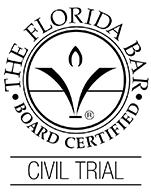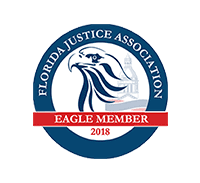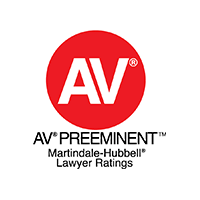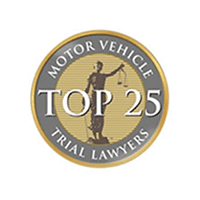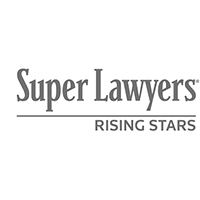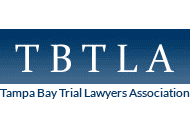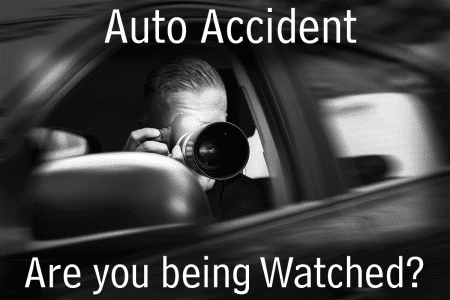
It used to be that insurance companies would hire private investigators with their conspicuous telephoto zoom lenses attached to cameras, all the while trying to avoid detection by hiding. While those days may be gone, or limited, insurance adjusters are still collecting video surveillance of victims to use as evidence to avoid paying your claims. With the advent of high-definition cameras in every smartphone, it has become so easy to record a person’s actions without their knowledge. Is that person snap chatting, or are they recording me? The truth is, you wouldn’t know until it was too late.
When Is Video Surveillance Obtained?
In just about every personal injury case involving Lakeland car accidents, truck accidents, slip and falls, and other injuries, you can expect video surveillance. That is because most personal injury cases involve an insurance company that will ultimately be responsible for paying out damages to victims.
When Is Video or Surveillance Footage Used?
Recorded footage collected by the insurance company can be used at any time. The insurance companies and specifically the insurance adjusters use video in their assessment of individual’s claims. They may record a victim’s actions or movements after a claim to determine if the victim’s actions correspond to their claims. For example, suppose a victim says he or she is having difficulty using their arms after an auto accident. In that case, an insurance adjuster might try to record the victim carrying groceries or other items from their car into a home.
Where Am I Being Surveilled?
Insurance adjusters, as well as private investigators, must abide by federal and state laws. They cannot violate your privacy to obtain video footage. An example of violating your privacy could include peering through a window. However, adjusters and investigators can typically gather video footage in a public area or in businesses open to the public. Those areas include but are not limited to parks, roadways, (vehicle and pedestrian), or your grocery store.
What Laws Protect Me From Being Surveilled?
The Florida Constitution expressly protects an individual’s right to privacy.[1] The Florida Constitution states, “Every natural person has the right to be let alone and free from governmental intrusion into the person’s private life except as otherwise provided herein.”[2] This right to privacy is broader than the right to privacy that is implied in the Constitution of the United States. However, before the right to privacy attaches, there must be a legitimate expectation of privacy.[3] Once it is determined that there is a legitimate expectation of privacy, the burden is on the party seeking to obtain the evidence to show that a compelling interest warrants the evidence and that it is being obtained by the least intrusive means.[4] This means that the party obtaining the evidence must have a high need for the evidence, and must obtain it in the least intrusive method possible. In civil cases, such as personal injury cases, Courts must engage in a balancing test, which will weigh the need for the evidence against the privacy interest of the person.[5]
There are certain places where individuals have an extremely high expectation of privacy. One place that is extremely private for individuals is their home. People have a high privacy right while being inside of their home. This right to privacy does not change if the individual owns a home, is renting, or is staying in a hotel room. The privacy protection will apply as long as the person is legally occupying the private permanent dwelling.[6]
It is also a criminal offense for someone to take video surveillance in places that have a high expectation of privacy, some of which include, bathrooms, changing rooms, fitting rooms, dressing rooms, and tanning booths.[7] This is not a complete list of places where it is illegal to take video surveillance of someone in a private setting.
What If I Am Recorded In A Private Place?
There are four common causes of actions that can be used when your privacy has been invaded:
- Intrusion Upon Seclusion;
- Appropriation of Name or Likeness;
- False Light; and
- Public Disclosure of Private Facts.
Intrusion Upon Seclusion
Intrusion upon seclusion protects your rights when you are in a private setting. Intrusion upon seclusion is defined as “intentionally intruding, physically or otherwise, upon the solitude or seclusion of another.”[8] Some general examples would be wire-tapping someone’s phone without their knowledge or planting hidden cameras in another person’s home.
The elements for intrusion upon seclusion are as follows:
- The defendant intruded into the plaintiff’s private affairs; and
- The intrusion would be objectionable to a reasonable person.
Appropriation of Name or Likeness
Appropriation of name or likeness allows citizens to control and protect their identity for business and economic purposes. [9] This generally occurs when a defendant uses a personal photograph of the plaintiff without consent to advertise a product.
The elements of Appropriation of name or likeness are as follows:
- The defendant used the plaintiff’s name, likeness, or identity;
- The use of the plaintiff’s identity was for the defendant’s benefit;
- The use was without the plaintiff’s consent; and
- The use caused injury to the plaintiff.
False Light
False light protects you from having information released to the public that may be misleading. The publication of these facts would place the person in a false light even though the facts themselves may not be defamatory.
The elements for false light are as follows:
- Defendant publicly disclosed information about the plaintiff;
- The information placed the plaintiff in a false light; and
- The false light would be highly offensive to a reasonable person.
Public Disclosure of Private Facts
Public disclosure of private facts is a cause of action when truthful private information that a reasonable person would find objectionable is released and spread to the public.
The elements for public disclosure of private facts are:
- Defendant publicized a matter regarding the private life of the plaintiff;
- The publicized matter is highly offensive to a reasonable person; and
- The publicized matter is not of legitimate concern to the public.
What If Someone Trespassed To Record Me?
In certain situations, a private investigator may be trespassing while they are gathering video surveillance against you. These situations are rare but can occur if you are on private property, places that are marked with no trespassing signs, and places that are not open to the public. This is not a complete list of places where trespass can occur.
The elements to have a valid trespass claim are as follows:[10]
- The individual entered the land;
- The land belonged to another;
- The individual did not have consent to enter the land; and
- Damages result from the individual entering the land.
You Have Been Recorded; Now What?
An insurance company may use recorded footage of a victim to dispute a victim’s claims that he or she can perform certain duties or activities they stated they could not or had difficulty doing. Alternatively, they might point out inconsistencies with prior testimony given by a victim. Video surveillance is a common tactic insurance companies use to prove a victim was fabricating and exaggerating their injuries. The goal is to discredit the victim to achieve a more favorable result.
This is why it is crucial to discuss your case with an attorney. A personal injury lawyer can often take steps to challenge such video evidence or help to mitigate the fallout from video surveillance. Injury lawyers often understand these tactics and others an insurance company uses to deny your claims. If you have questions about your personal injury case, Ask a Lawyer, Ask Dave.
Author:
[3] Nucci v. Target Corp., 162 So.3d 146, 153 (Fla. 4th DCA, 2015).
[4] Id.
[5] Nucci, 162 So.3d at 153; citing Rasmussen v. S. Fla. Blood Serv., Inc., 500 So.2d 533, 535 (Fla. 1987).
[6] State v. M.B.W., 276 So.3d 501, 507 (Fla. 2d DCA, 2019); quoting Turner v. State, 645 So.2d 444, 447 (Fla. 1994).
[8] Purrelli v. State Farm Fire & Cas. Co., 698 So.2d 618, 620 (Fla. 2d DCA 1997).
[9] Fla. Stat. 540.08 (2019).
[10] Fla. Stat. 810.08 et. seq. (2019).


![cftla-member[2]](https://www.1800askdave.com/wp-content/uploads/2022/03/cftla-member2.png)
![cftla-member[3]](https://www.1800askdave.com/wp-content/uploads/2022/03/cftla-member3.png)

